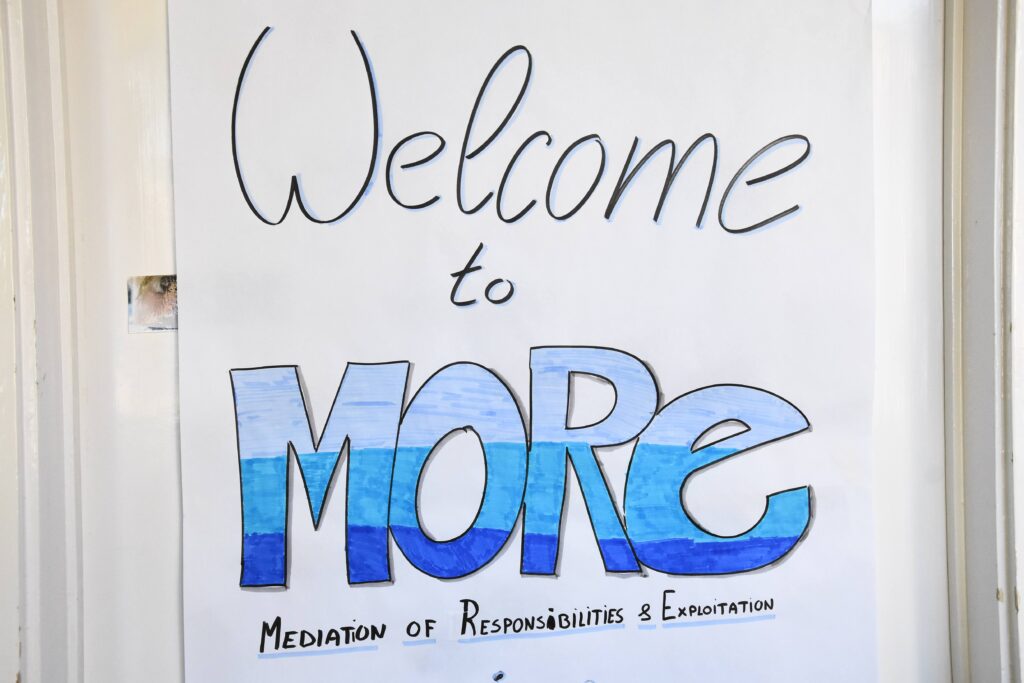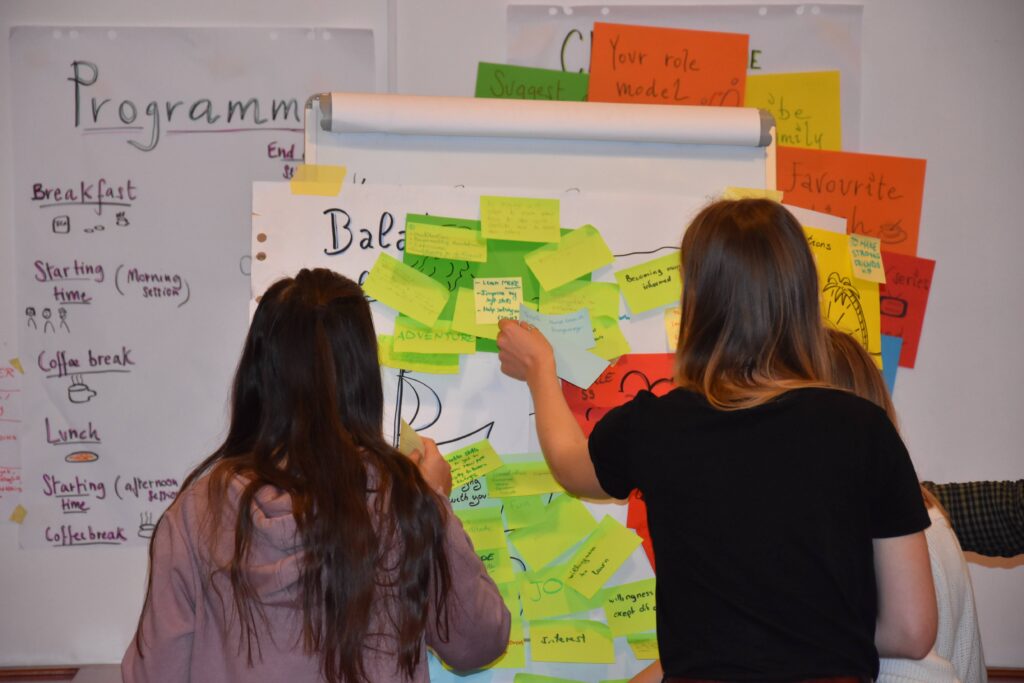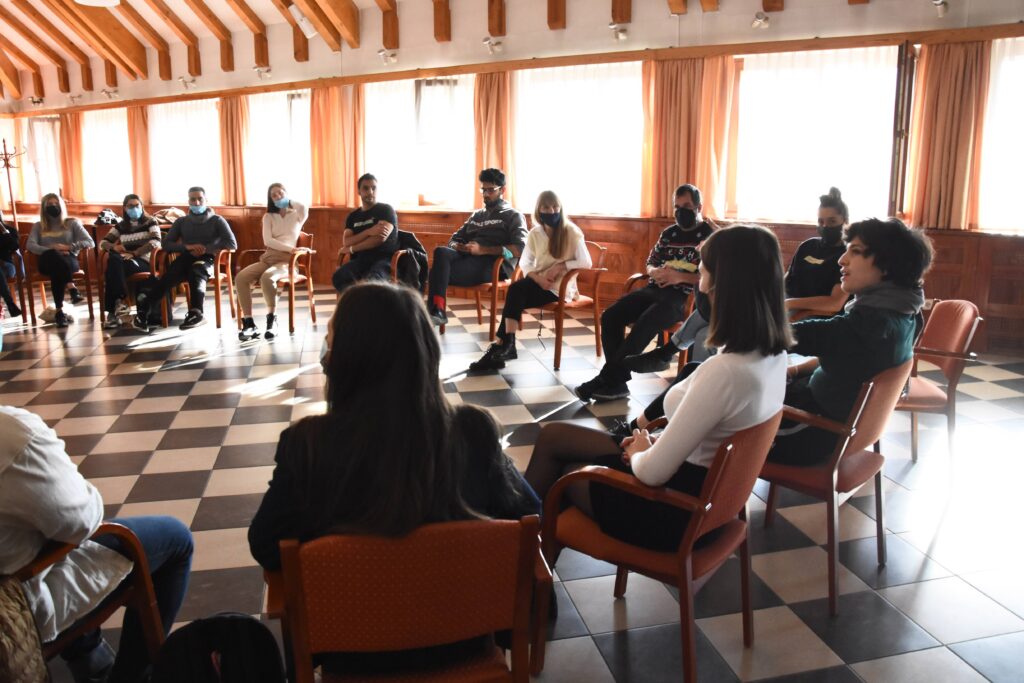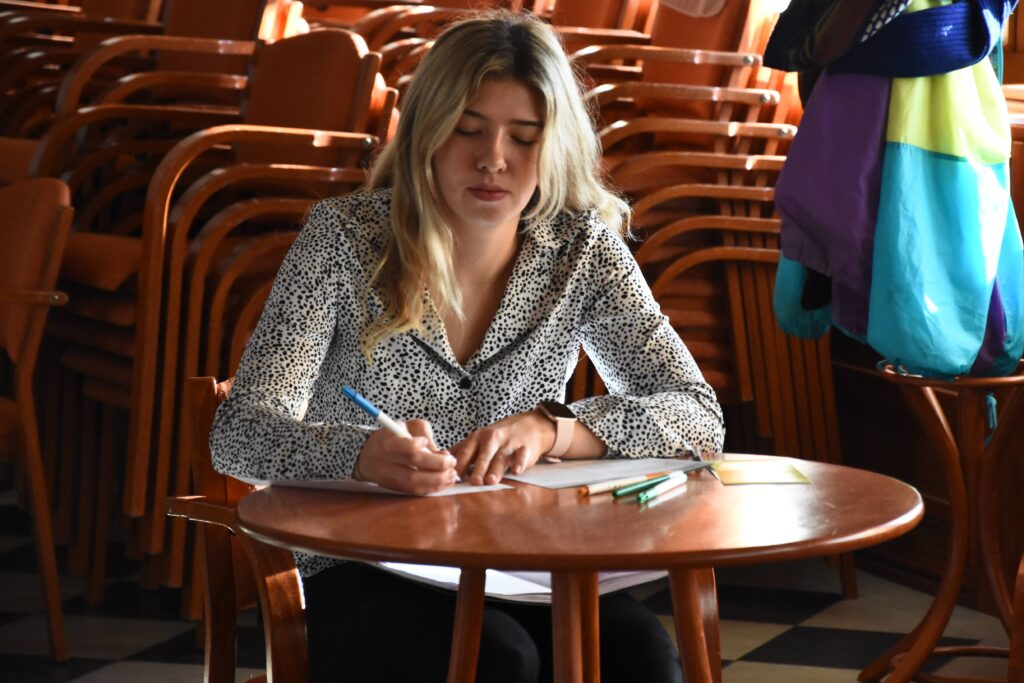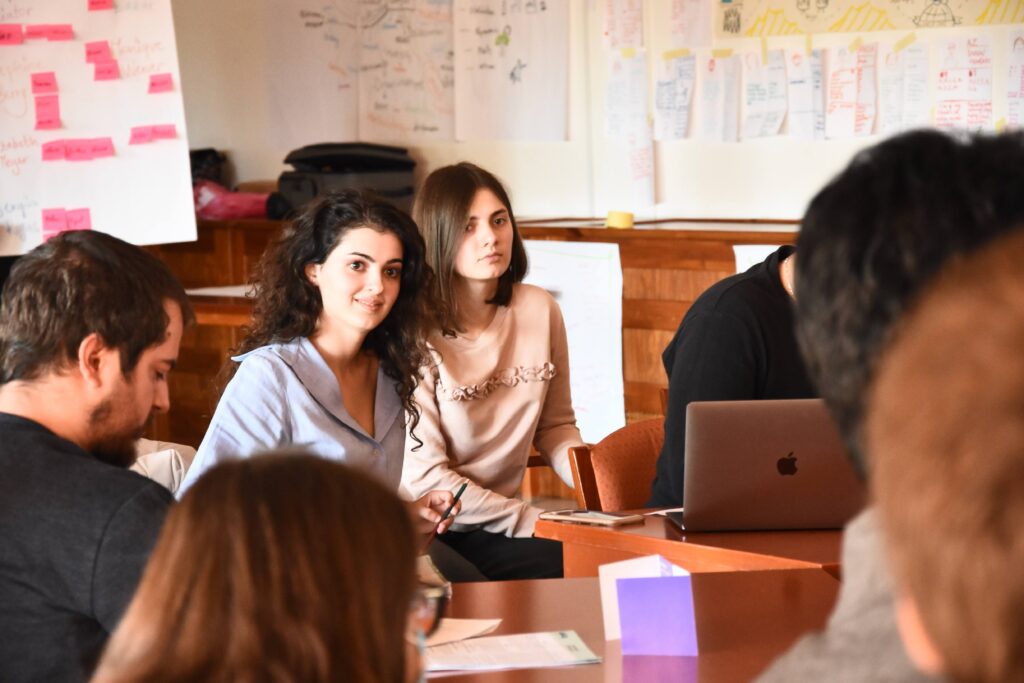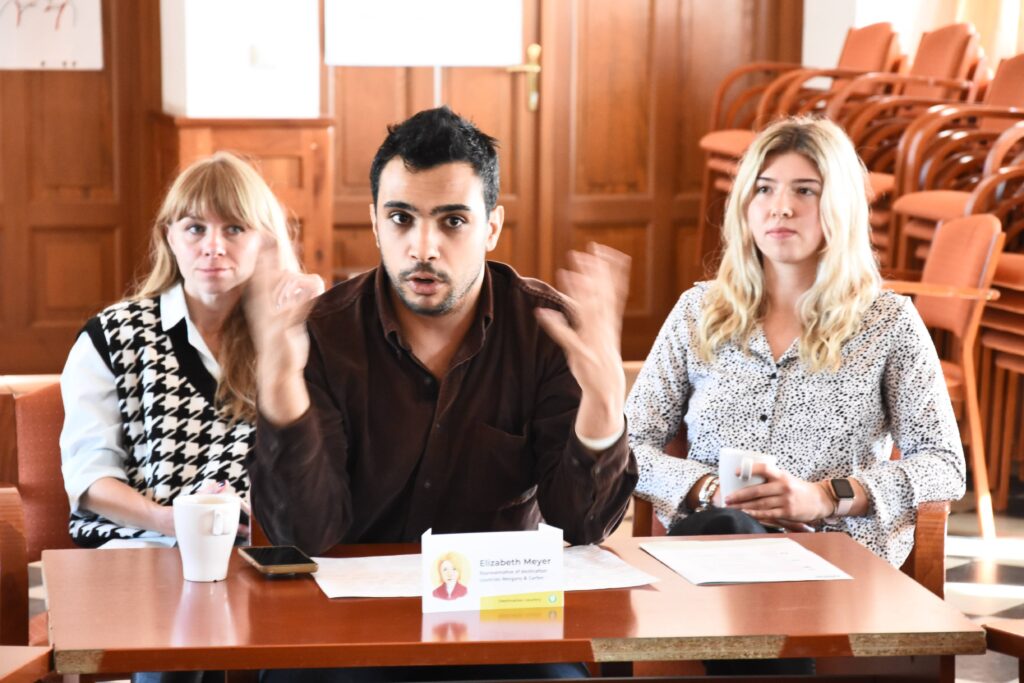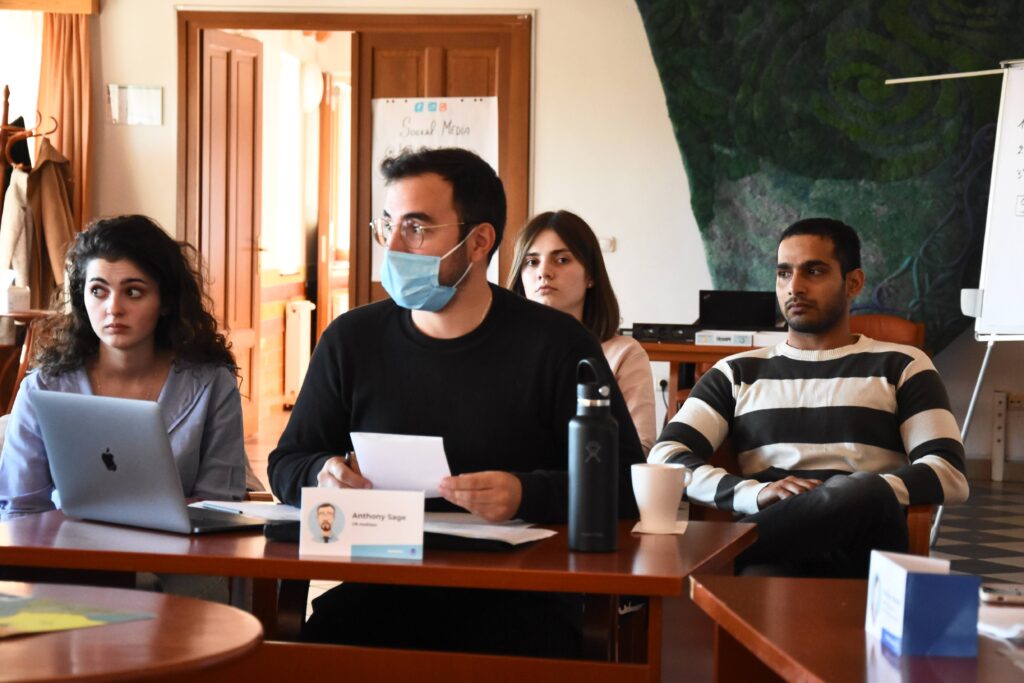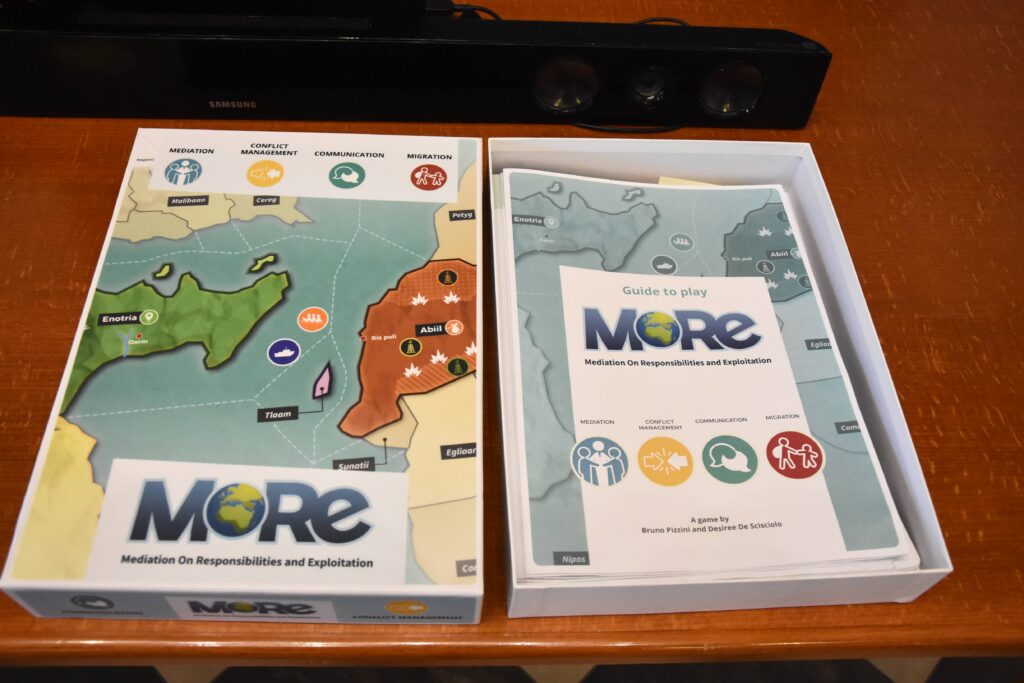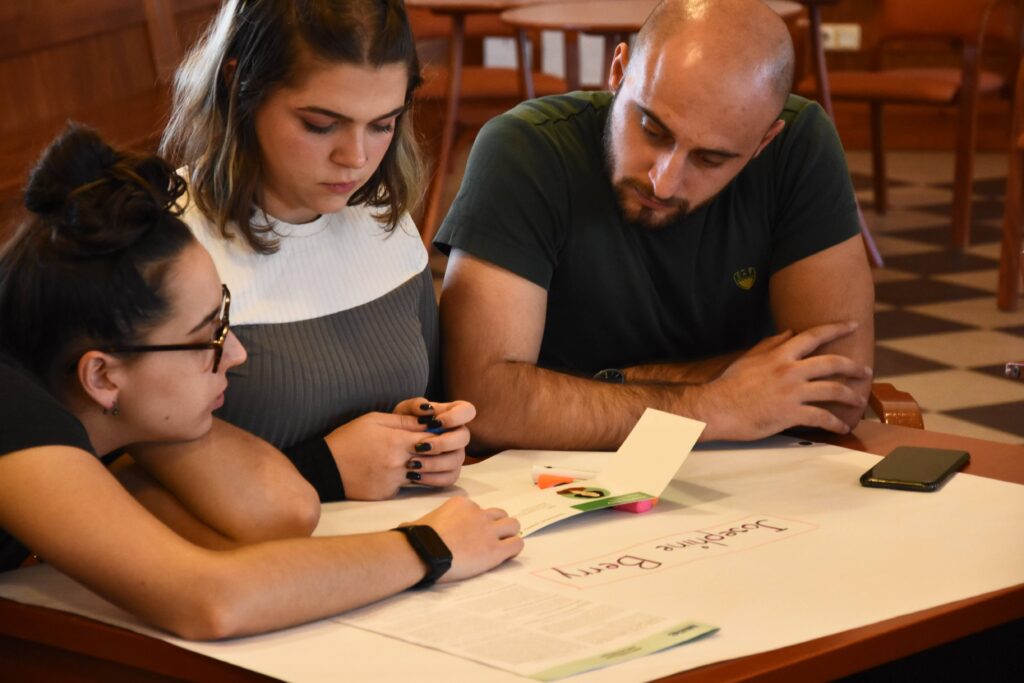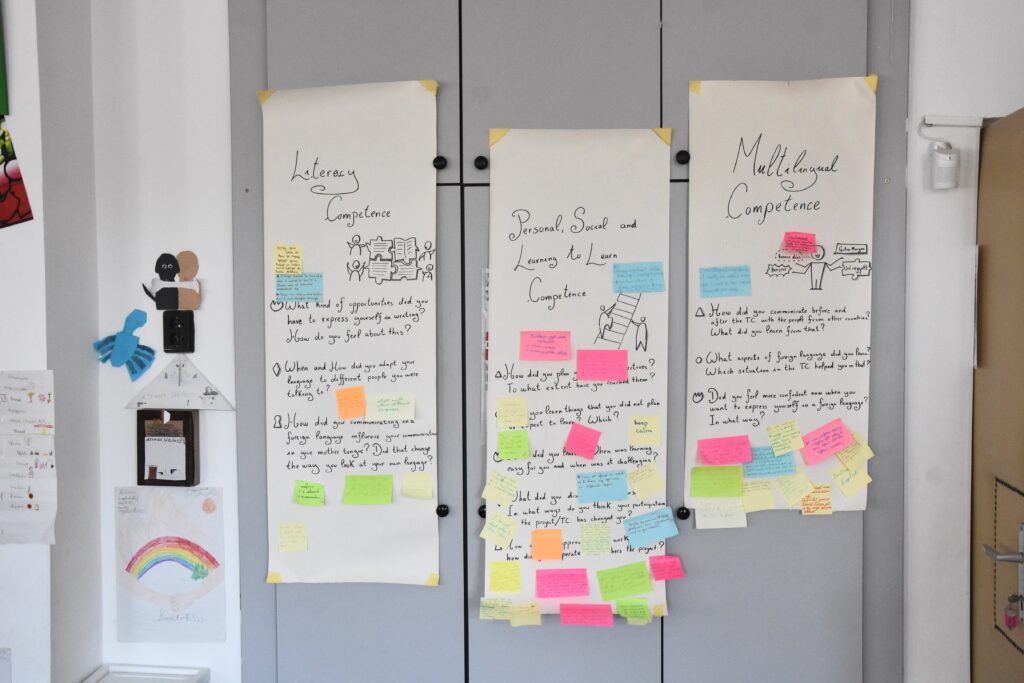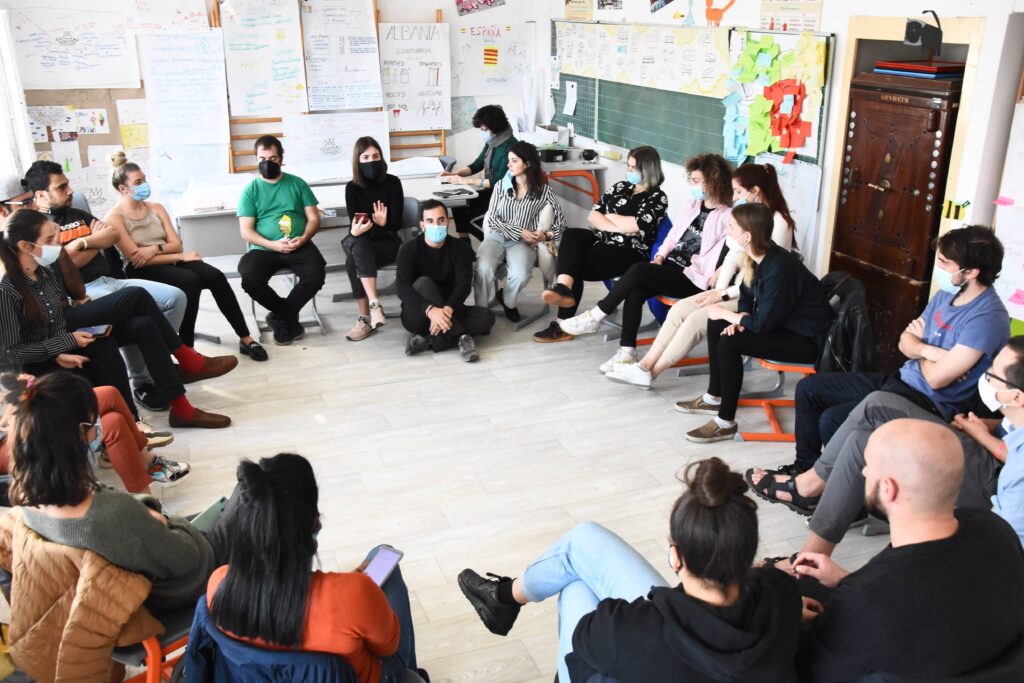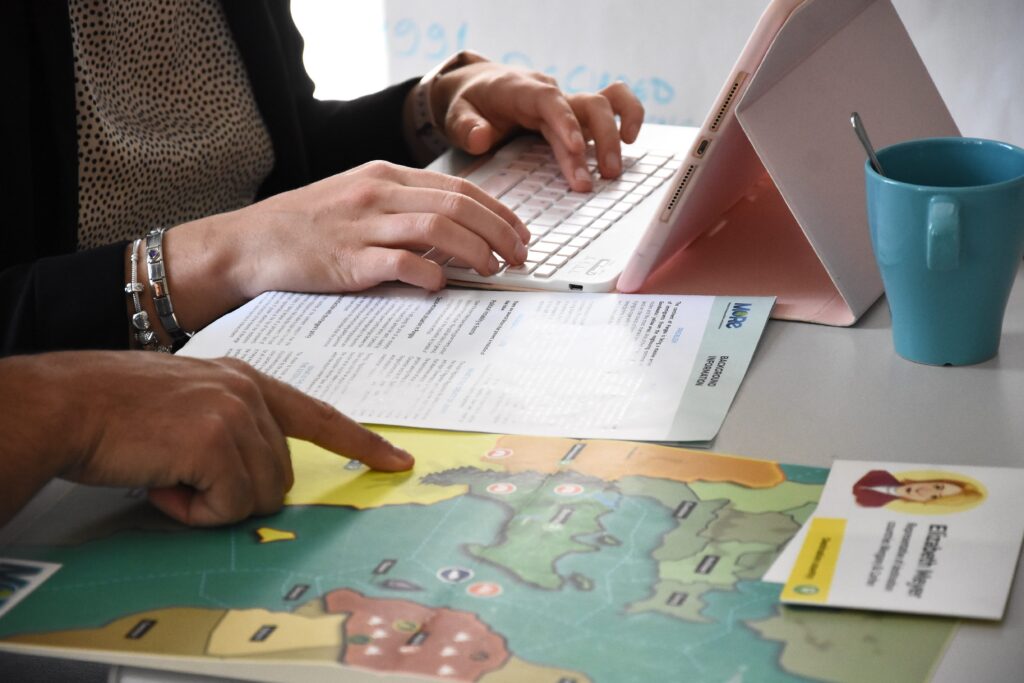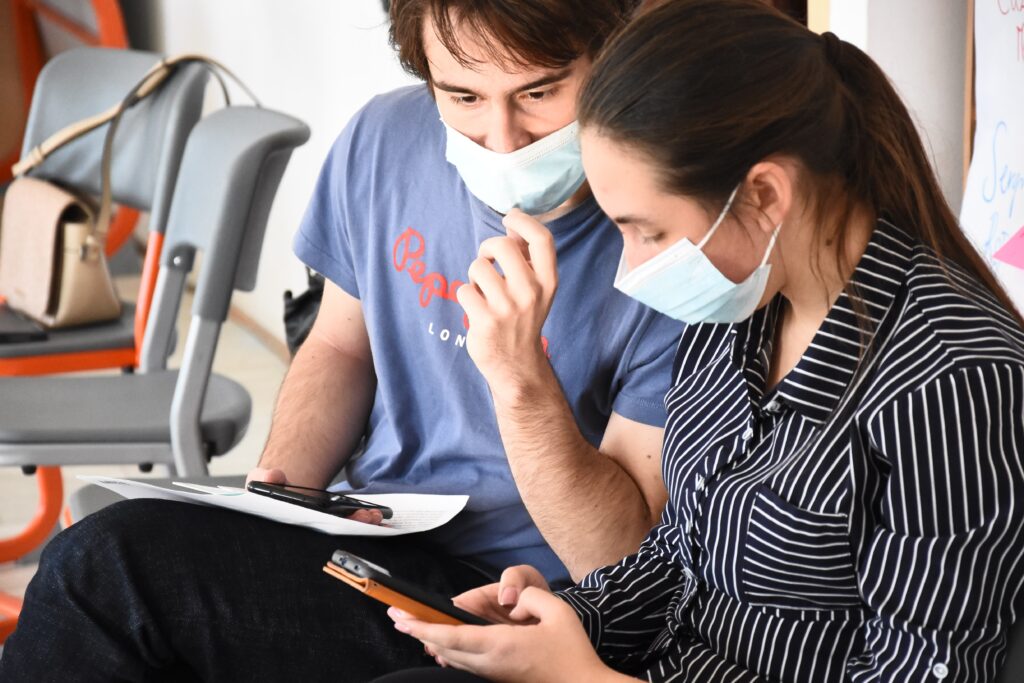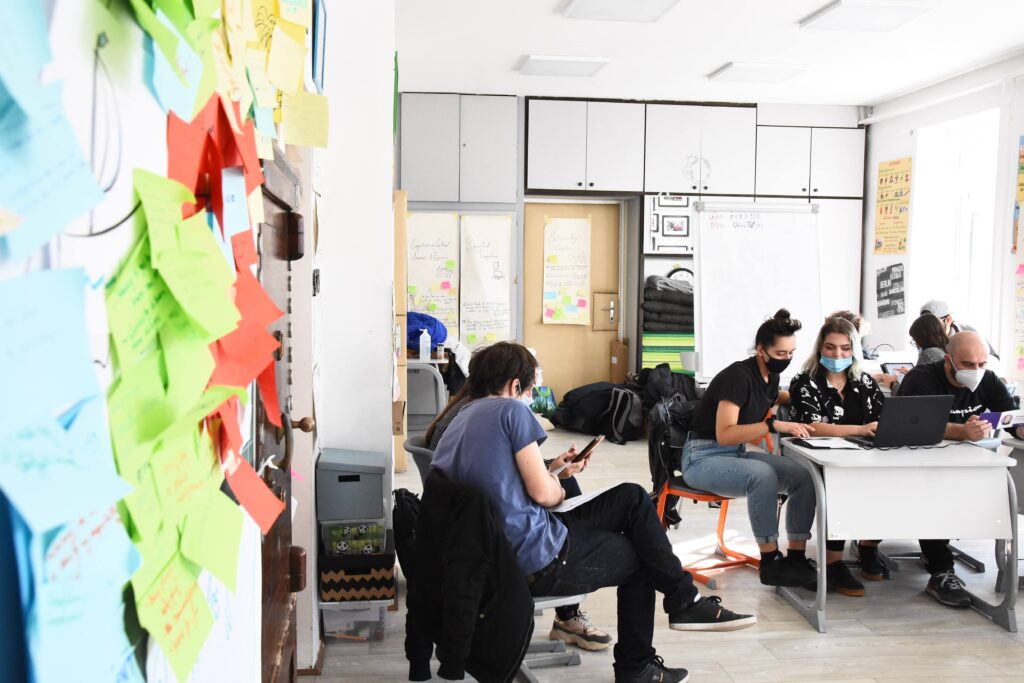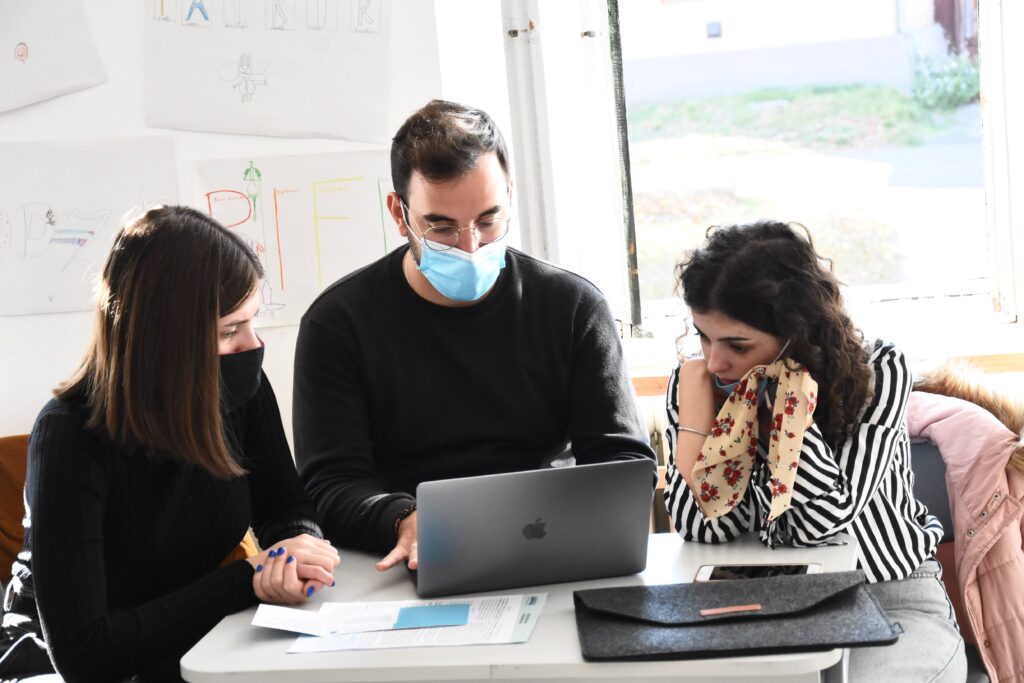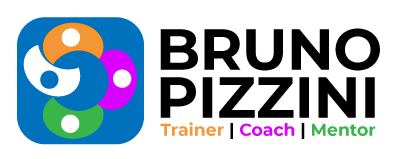In late October 2021, I co-facilitated one of the most significant projects I’ve been part of: the first full-scale international training course dedicated to the development and testing of MORE—an educational role-playing game designed to strengthen conflict management skills and intercultural understanding through experiential learning.
Held in Veresegyház, Hungary, and organized by Támaszpont MOPKA, the training brought together 29 dedicated youth workers, educators, and social makers from nine different countries: the UK, Albania, Hungary, Ukraine, Greece, Latvia, Italy, Belgium, and Spain. Together, we formed a creative, collaborative, and highly diverse team representing ten organizations with a shared goal—to explore how conflicts emerge, escalate, and can be transformed through empathy, negotiation, and responsible action.
The heart of the training was the MORE simulation game itself—a role-play scenario centered around a fictional but highly realistic mass migration crisis. Participants took on the roles of different stakeholders: politicians, NGOs, journalists, international institutions, and civilians, each with their own interests, pressures, and values. Through the game, we explored not only how decisions are made, but also how they’re influenced by culture, privilege, urgency, and empathy.
But this was much more than just “playing a game.” Before diving into the simulation, we built a strong group dynamic with a series of get-to-know-each-other activities like “The Blanket,” “The Clock,” and “Save the King.” These were not only fun icebreakers—they laid the groundwork for trust, cooperation, and emotional safety. From there, we introduced concepts like Youthpass Mandala, World Café, Mind Mapping, and Barnga, blending theory and practice in a fluid, engaging way.
The participants didn’t just play MORE—they helped refine it. Through feedback sessions, discussions, and a testing phase, we fine-tuned the mechanics and emotional pacing of the game. We also worked on translating MORE into several European languages, making it accessible to a wider audience. By the end of the course, translations were ready in Italian, Hungarian, Spanish, Latvian, Greek, and Albanian.
We also looked beyond the game. Together, we created a dissemination strategy to promote the tool across Europe and planned ways to implement it locally. Participants left with a deeper understanding of conflict—at personal, local, and international levels—and with practical tools to foster dialogue and peaceful resolution in their communities.
One of the highlights was our field activity in Budapest: a scavenger hunt that combined cultural exploration, teamwork, and educational reflection. It added a light yet meaningful dimension to the overall experience and helped cement the bonds we had formed throughout the training.
The MORE training was not just about designing an educational tool—it was about co-creating a shared space of learning, growth, and empowerment. It reminded us that conflict doesn’t need to divide—it can also be a starting point for deeper connection and change.
Learn more about the game at www.moreconflictmanagement.com
